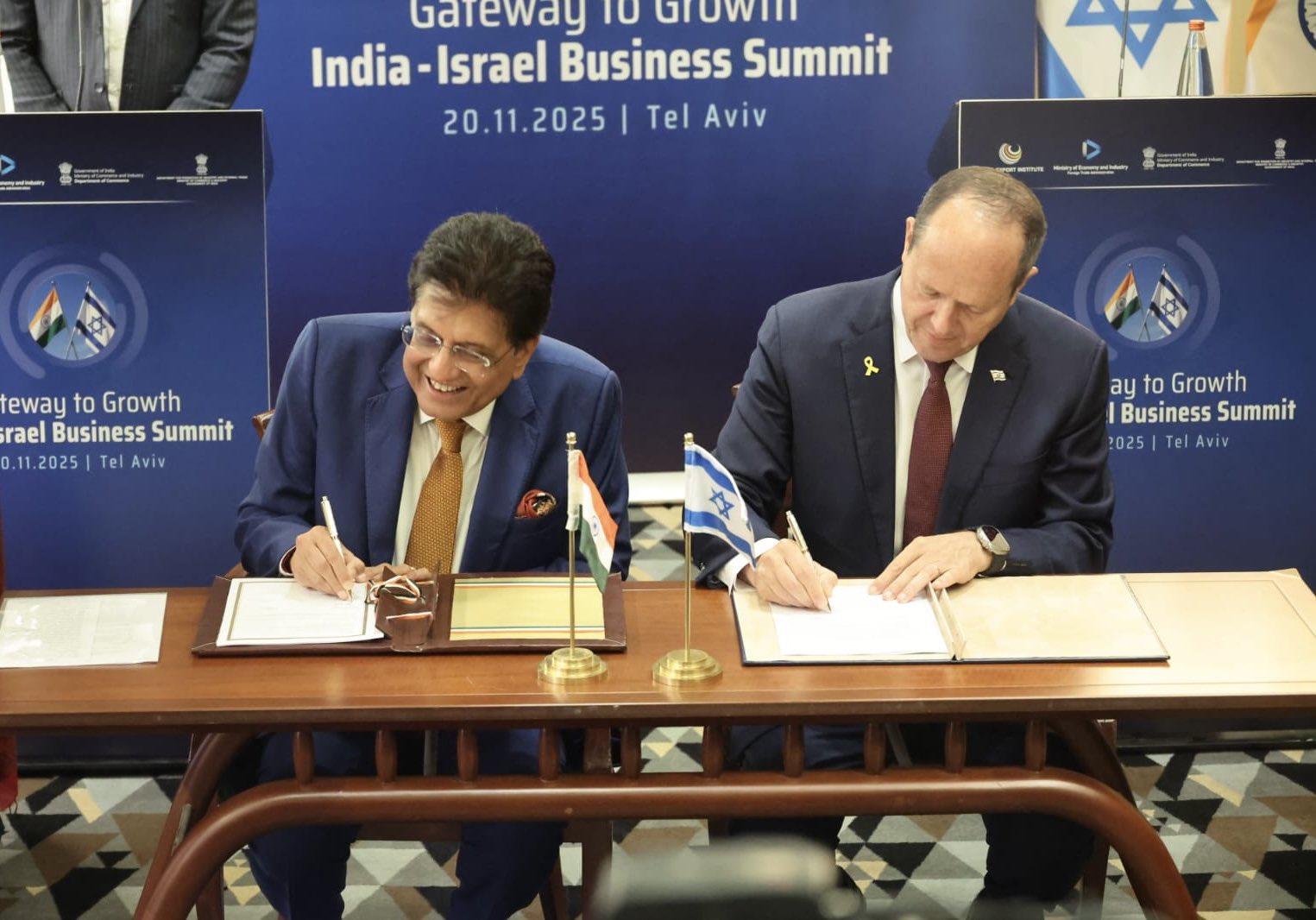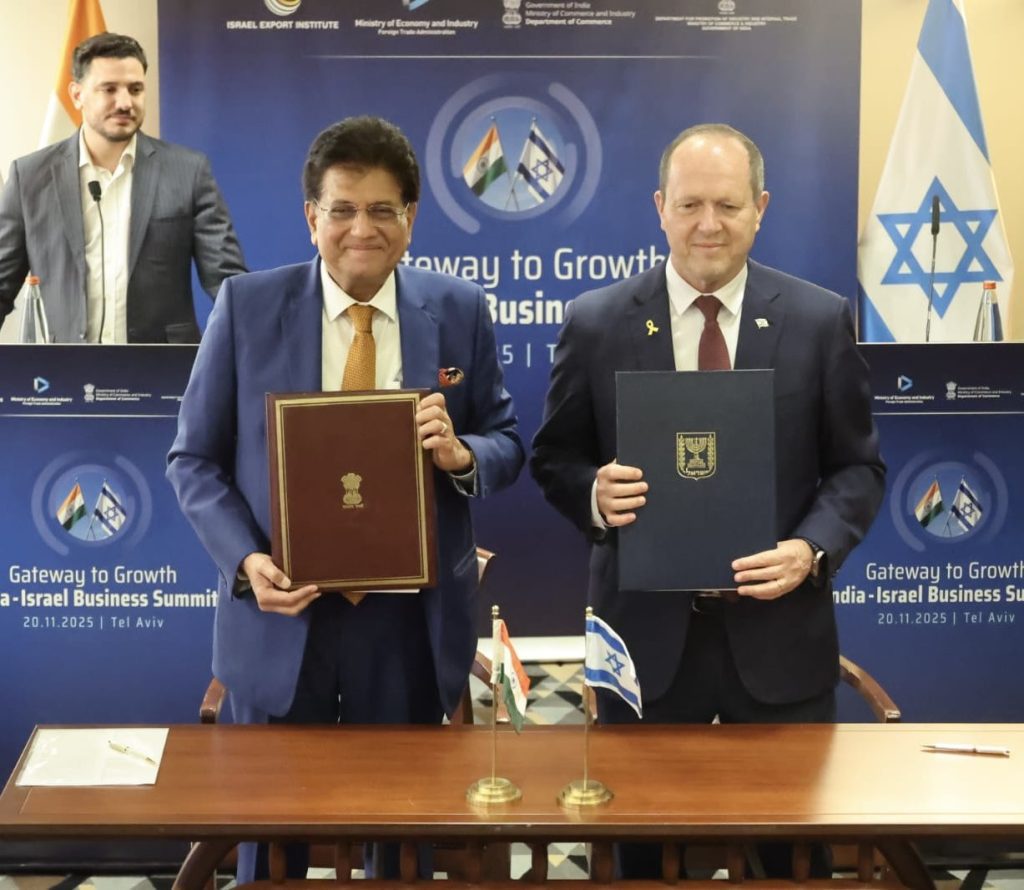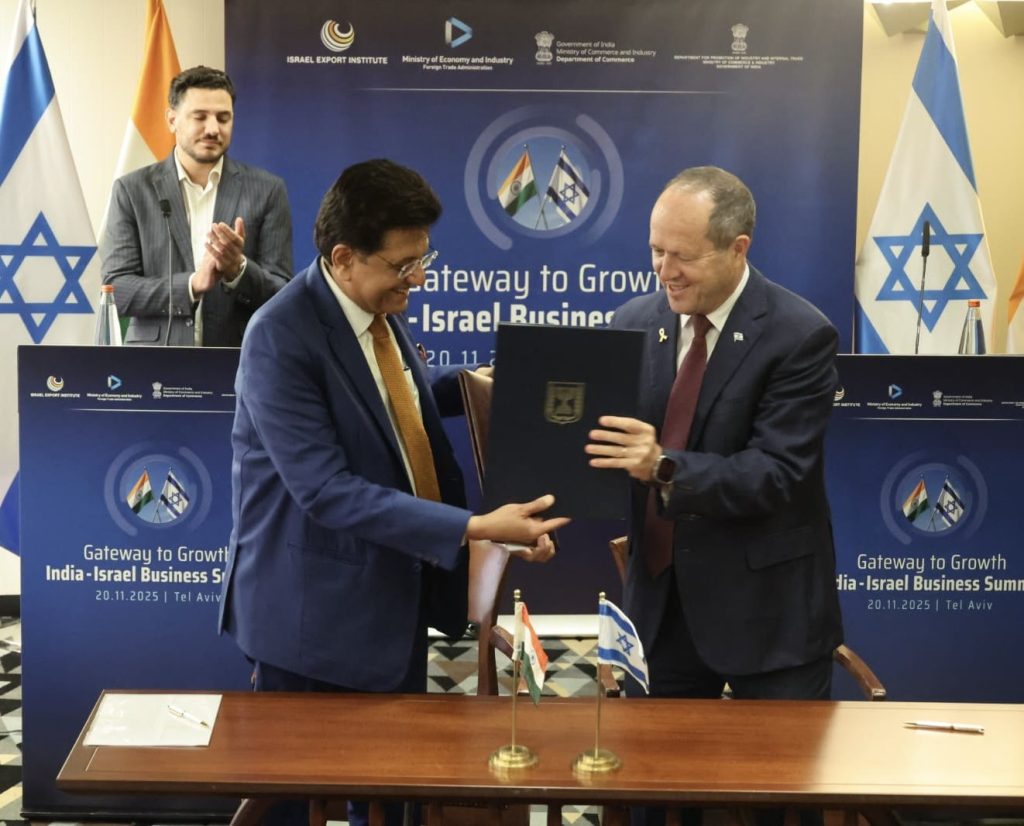India and Israel have formally signed the Terms of Reference (ToR) to initiate negotiations for a Free Trade Agreement (FTA), marking a major step toward deepening bilateral economic cooperation.
The ToR was signed in Tel Aviv by India’s Minister of Commerce and Industry Piyush Goyal and Israel’s Minister of Economy and Industry Nir Barkat. The signing sets the framework that will guide structured negotiations between the two nations.
In a post on X, Goyal wrote, “Together with Nir Barkat, Minister of Economy and Industry of Israel, I signed the Terms of Reference (ToR) to guide the negotiations for a free trade agreement (FTA) between India and Israel today. This is the first crucial step towards facilitating talks to conclude a balanced, comprehensive, and mutually beneficial FTA to strengthen and enhance our trade, economic, and strategic partnership.”
He added, “Our joint aim is to diversify and enhance bilateral trade, creating a larger market by identifying new areas of cooperation while addressing sensitivities across various sectors. We remain committed to leveraging each other’s complementarities to deliver a mutually beneficial outcome for both sides.”
Speaking at the event, Goyal confirmed that both countries have agreed to commence negotiations for a comprehensive FTA and emphasised that the proposed agreement would substantially enhance bilateral economic engagement.
According to the minister, the FTA is expected to “open the doors to greater market access, flow of capital, investments and trade, both in goods and services.” He said the deal would help remove obstacles to doing business and “provide clarity, predictability and stability to our economic engagement.”
Goyal said India and Israel, as long-standing strategic partners, are “destined to bigger achievements and greater friendship.” He stressed that both economies complement each other rather than compete, remarking, “We are two countries which really don’t compete with each other, which open the doors to products, goods, services and investments, where we act as a force multiplier for both countries, and we are ambitious to finalize a win-win, fair, equitable and balanced free trade agreement between our two democracies.”
The minister also highlighted India’s strengths in innovation, pointing to its strong intellectual property regime and status as the world’s third-largest startup ecosystem. He noted the country’s rising focus on deep-tech sectors, including artificial intelligence, quantum computing and machine learning, along with the rapid expansion of digital and data infrastructure nationwide.
Once negotiations begin, both sides are expected to identify areas of convergence and explore new sectors that can accelerate investment flows, technology partnership, manufacturing linkages and services-based trade.
-ANI
















